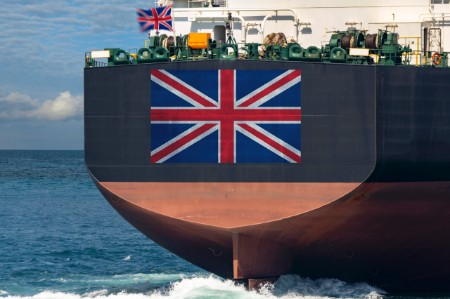Observers say the coming year will be key in determining whether two-way UK-EU trade will be free of friction — or full of it. Three outcomes are often touted: a specially designed UK-EU trade deal; a Swiss-style free trade agreement; and finally, no agreement at all, with both sides trading under World Trade Organization (WTO) rules.
A deal acceptable to both sides could result in smart technology and trained border guards securing friction-free trade post Brexit. But, a no-deal with trade ruled by WTO laws could mean “hard” borders, customs duties and the reintroduction of two-way tariffs.
At the border
For now, businesses can reduce stress by planning for each eventuality. Some companies produce literally thousands of products, so it’s key that they know what customs forms are required. To do so, businesses must have up-to-date operating systems and make sure their products are “scrupulously classified,” according to Mats Persson, EY Head of International Policy and Trade.
This includes a product’s origin: if a UK firm ships a Chinese-made jacket into the EU, it will likely be hit with a higher tariff than previously.
Another pre-emptive move companies can take to prepare for the post-Brexit era is to sign up with HM Revenue & Customs (HMRC) for “trusted trader” status, which ushers shipments by “authorized economic operators” faster through customs.
“If the UK Government considers you trustworthy, your goods will likely be fast-tracked at the border,” says Persson.
Supply chains
As for complex pan-European supply chains, perfected over decades, multinationals are left asking if they will be “broken” by Brexit, or mildly sprained. In our report published in March 2017, Brexit — Official withdrawal UK from EU: Indirect Tax/Global Trade Consequences, we said that, regardless of the outcome of trade negotiations, Brexit would have a “large financial impact” on the British portion of global supply chains.
Ireland, the sole land-based UK-EU border, is likely to be the front line for post-Brexit trade issues, such as border delays or disrupted supply chains. Marc Bunch, EY Global Trade Leader UK and Ireland, predicts the emergence of more fully local supply chains, with goods produced and consumed entirely on one side of a renewed “hard” Irish border.
VAT
And, what will happen to value-added tax (VAT)? Will VAT rates change as the UK Government showcases its ability to set more business-friendly rates? Firms should look for ways to mitigate the VAT and customs consequences of a “hard” Brexit, according to our report on Brexit from March 2017.
Under a “hard Brexit” scenario, traders will likely have to pay VAT at a border, be it the Port of Dover or Heathrow Airport, and claim it back later. That would be manageable for bigger businesses accustomed to dealing with tax and trade complexities, but likely painful for smaller firms, according to Persson.
The countdown to March 2019
In January 2018, one betting company was offering 2-to-1 odds that no Brexit deal would be reached by 1 April, 2019, and 5-to-1 odds that another EU referendum would be held before that date.
Businesses that have already started preparing for an uncertain future post Brexit will be further ahead and more capable of responding to these changes than those firms that opt to wait and see what Brexit brings.


